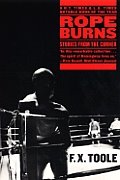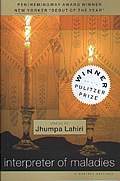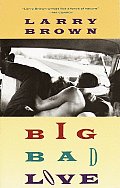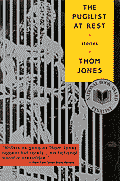
Antediluvian Tales by Poppy Z. Brite
During my baby doll dress-wearing, 'zine-swapping, poetry slamming alterna-teen days, I was aware of Poppy Z. Brite, and though I'd never read one of her books, I did not like her. Part of this can probably be attributed to my teenage disdain for the goth aesthetic, but looking back, I think I was mostly just jealous that someone not that much older than me was already so successful and driven as a writer.
And then, ten years later, I was assigned to review the Courtney Love book Dirty Blonde, and picked up Brite's excellent biography for background research. Reading it, I realized that I hadn't given Brite a fair shake. So, I picked up her trio of Rickey and G-Man books, Liquor, Prime, and Soul Kitchen, and by the time I was through with them, not only was I shamed by my youthful rush to judgment, I had a new favorite author.
I love everything about Brite's writing. I love her dark humor, her lovably debauched, soul-searching characters, and her insights into the restaurant business and tantalizing descriptions of food. I love the way she writes about New Orleans. I love her range as a writer, and though it sounds a bit melodramatic to phrase it as such, her integrity to her craft.
Everyone in New Orleans was impacted by Hurricane Katrina, to understate it by a mile. And as the city rebuilds (or doesn't) and as people move back (or don't), it's clear that New Orleans will always be New Orleans, but it won't be like it was. Though it's only a small part of the social fabric, it's interesting to see what that means for writers and artists like Brite, whose work has always been so rooted in the city.
Antediluvian Tales doesn't spell out what that means for Brite, but in her introduction, she makes it clear that things are going to be, will have to be, different:
"After the events of 2005, though, I couldn't see pairing stories I'd written before the flood with those I'd written after; for better or worse, my life, my outlook, and, necessarily, my work has changed forever... Whatever else they may be, the stories in this little collection now seem almost impossibly innocent to me."
The characters will be familiar to those who know Brite's fictional universe. Five of them are about the Stubbs family, and two about the author's ambiguously gendered alter ego, Dr. Brite, coroner of New Orleans. However, their arrangement is eclectic. Although Brite includes an appendix which allows the stories to be read chronologically, the stories are arranged in the order she found most pleasing.
Though I liked them all, the Stubbs family stories are the strongest in the collection. Brite struck gold when she created this family, a sort of Yoknapatawpha County, NOLA-style (i.e. all the pain without any of that pretentious, beholden-to-the-past southern stoicism, which isn't as dignified as it's cracked up to be).
Standouts include "The Feast of St. Rosalie," where G-Man's lonely, divorced sister considers the connection with her beatific namesake, and "The Devil of Delery Street," a comically sinister story where the Stubbs family is haunted by a ghost that's both malicious and attention-starved. The collection also includes a nonfiction piece, "The Last Good Day of My Life," where Brite contemplates a day she spent birdwatching, eating, and adventuring in Cairns, Australia shortly before Hurricane Katrina. It's one of those seemingly insignificant, yet rare and perfect days, the kind that Brite says, "you probably only get a half-dozen or so in a lifetime, and that's if you're lucky."
And then days after that perfect day, life changed forever. While memories of that trip helped her get through much of 2005 and 2006, she's also found that since then, she has trouble leaving the city now. Brite says, "Until I overcome this, there will be no more truly good days no matter where I am. No more cassowaries or mudskippers... No more adventures except maybe the kind you're forced into. No more coming home."
However her work may change in the future, I'm glad that Brite found a home for the stories in this book. It's a slim, yet wonderful collection that ends one chapter in a writer's career, but leaves the door open for a great deal of exciting and much-anticipated work. It's also worth noting that Brite's future Rickey and G-Man books (she has planned three more for the series) will have a different, though as yet unspecified publisher. In "The Last Good Day of My Life," Brite alludes to an editor who attempted to exploit her Katrina experiences. Though I'm not sure about the particulars here, Brite ended her relationship with Three Rivers Press shortly after the publication of her last novel, Soul Kitchen.
Silly editors. Don't ever ask a southerner to exploit anything about their southern-ness, natural disasters included. Haven't they ever listened to "Outfit" by DBT?















